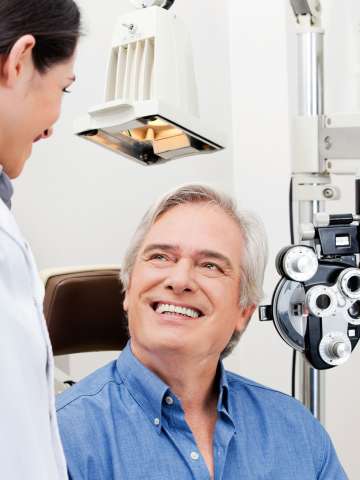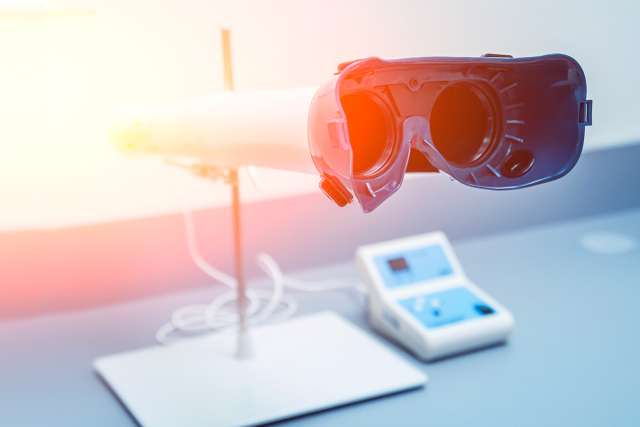Vision Rehabilitation
Our vision rehabilitation team provides comprehensive, research-based care to improve quality of life in patients with low vision.

Why choose UCLA Health for vision rehabilitation?
Through the Vision Rehabilitation Center, our specialists offer comprehensive care for patients with low vision. We use effective, leading-edge therapies, including options available through clinical trials. Our center is part of the UCLA Health Stein Eye Institute and Doheny Eye Centers, which U.S. News & World Report consistently ranks among the best in the nation for ophthalmology care.
Highlights of our program include:
Wide range of treatment options: We use a variety of visual assistive devices to improve quality of life for people with low vision. Our specialists offer everything from standard magnifiers, telescopes and glasses to new and advanced technologies. Our goal is to help you find the solution that offers you optimal function.
Research focus: We continually improve care and expand treatment options through research and clinical trials. For example, some of our studies have focused on teaching older adults to use smartphones to assist with vision impairment. Another study is developing a socially assistive robot to help people learn to use a new magnifier at home. Our research strives to find new ways to help all patients improve quality of life and visual function.
Telehealth services: Our specialists use telehealth and virtual video conferencing during follow-up appointments. We use these technologies to provide training with new visual aids, either as a part of clinical care or research. Our aim is to reduce barriers to care by limiting the need for patients to travel to our offices.
What is low vision?
Our specialists treat patients who have trouble with everyday functions, either due to mild low vision or legal blindness. Low vision is defined as less than 20/60 vision in your better-seeing eye. However, we also provide assistance for many patients who have vision better than 20/60 when it affects their day-to-day activities.
Impaired visual function may include difficulty with driving, reading, working, watching television, or enjoying your hobbies or favorite activities. We find the best possible treatment to improve your quality of life.
Visual assistive devices we offer
Low vision rehabilitation focuses on improving visual function for daily living activities. We offer multiple visual assistive devices to help patients with their daily tasks, including:
Reading glasses: Glasses with a stronger-than-standard prescription lens to provide magnification
Magnifiers: Handheld devices, stand magnifiers or video magnifiers, including ones with different color contrasting backgrounds or adjustable cameras
Adapted virtual reality (VR) technology: Headsets that provide enlargement, contrast enhancements and brightness adjustments at different viewing distances to enhance vision
Optical character recognition (OCR) technology: A device that electronically converts images of text into machine-encoded text that’s easier to process, such as in text-to-speech functions
Telescopic devices: Devices that patients look through briefly to view details better, often for use while driving or watching television or when outdoors or in classroom settings
Filters: Tinted fitover lenses for glare control, used indoors or outdoors
Computers and mobile apps: Accessibility software for visual assistance on computers, tablets and smartphones
Meet our team
Our team offers extensive treatment options for patients with low vision. We research the latest techniques and tools to continually offer effective therapies. Patients who come to us benefit from our compassionate, team-based approach and individualized care to meet each patient’s visual needs.
Contact us
Call 310-825-5000 to request an appointment with a vision rehabilitation specialist at UCLA Health.
